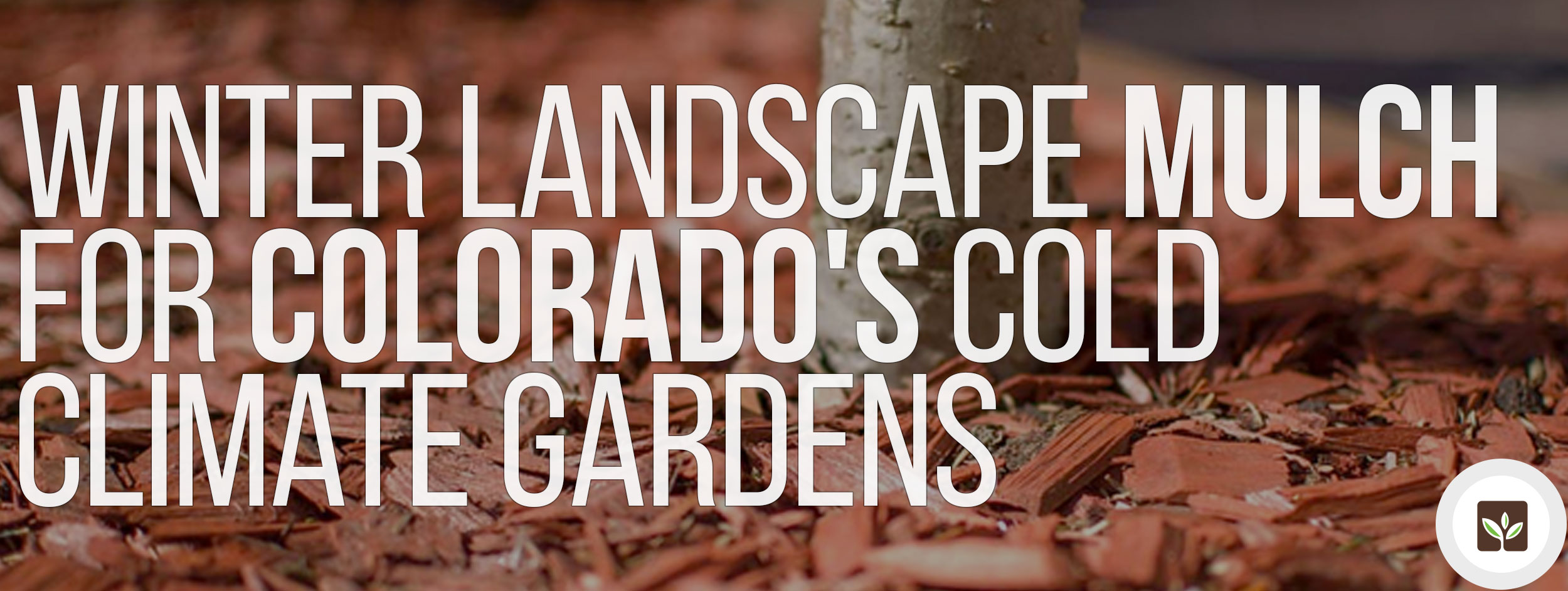
Winter Landscape Mulch for Colorado’s Cold Climate Gardens
Depending on where you live, the start of winter season always causes trepidation for a gardener. Your prized perennials need a break, but you’ll need to protect them from ice and snow just around the corner. Winter mulching services are a popular way to protect your plants during these colder seasons as they go dormant.
If you haven’t ever looked at winter mulching, you’re missing out on some serious benefits for your landscapes. These are just a few ways that mulch can help you during colder seasons.
Should You Mulch Around Plants in Winter?
No one wants to be out in the snow during cold weather and snow, but you should mulch around your plants as temperatures drop. At nighttime, it’s likely that temperatures can drop extremely low or even below freezing, even when it’s not winter. When you know that colder temperatures are coming, mulching can be your first defense and protective blanket for your precious plant beds.
In addition, due to ice and thawing, shallow-rooted plants tend to pop up out of the ground and bust their delicate stems and roots. Mulch can provide warmth and prevent these plants from freezing and thawing over and over.
Not all plants need to be mulched during the winter, according to expert landscapers. If you don’t have temperatures that fall close to or below freezing, then mulching your plants will keep them active through winter seasons instead of allowing them to go dormant. Also, as these plants try to grow in spring, they may have been damaged by nighttime frost, which can lead to fungal and bacterial pathogens.
However, a professional mulch installation service can note which plants do well with winter mulching and which plants should be left alone.
Which Mulch Types are Best for Winter
Certain types of mulch work better to lock in warmth and protect your plants. These are a few things you should consider before picking the right mulching installation service.
1. Wood Chips and Savings
Hardwood and softwood chips are perfect for perennial beds and garden pathways during the winter. You should only use wood that is organic and hasn’t been treated with chemicals.
2. Shredded Leaves
You can use this type of mulch as a lightweight cover for your soil that quickly decomposes and provides nutrients to your plants even in colder weather.
3. Pine Needles
If you have ornamental beds and shrubs that enjoy acidity, then pine needles are the best option as your winter mulch. These needles can retain moisture and provide a lightweight protective barrier that is fragrant throughout your landscapes.
4. Straw but Not Hay
Straw is the perfect lightweight cover to keep your soil moisturized and warm without stifling your plants. It’s also inexpensive and can be found at most garden stores. Hay is not ideal as mulch, so you should be careful when picking out your products. Hay also tends to attract bugs and leads to weed growth.
Should You Winter Mulch?
If you want to keep your landscapes in good shape throughout all seasons, winter mulching could be just the answer. While it depends on the types of plants in your garden, talking to a mulch service about your lawn needs during the cold season could lead to unexpected growth and better plant health through difficult seasons of ice and snow. It’s your first defense against losing plants to below freezing temperatures!
Categories: Colorado Mulch Installation, Mulch Benefits | Tags: Colorado Mulch Installation, Landscaping Mulch, Mulch Benefits, Mulch Blowing, Winter Mulch